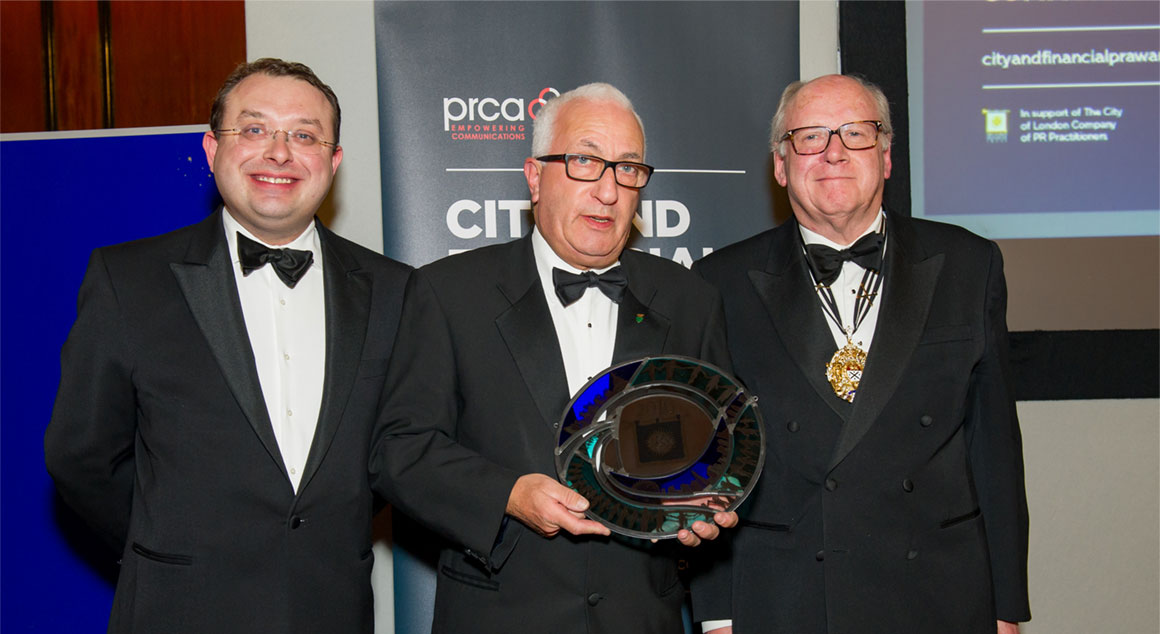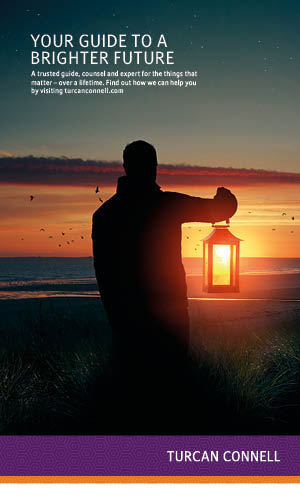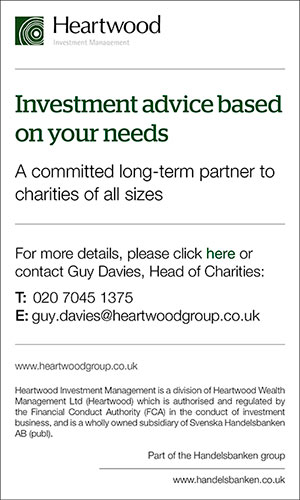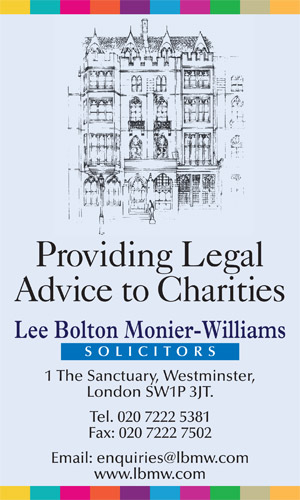NEWS

Livery companies give award to charity communicator
A new annual competition for "Clarity in Charity Communications", inspired by the Public Relations Practioners' Company and jointly run by the PRP and the Glaziers' Company, has produced its first winner - Phillip Davis, Past Master of the Hackney Carriage Drivers and chairman of the Children's Magical Taxi Tour organising committee and charity.
The annual "Clarity in Charity Communications" competition is meant to reflect the involvement of the livery movement in the charity sector, with nominations coming exclusively from the livery companies. The award is open to any UK based PR initiative undertaken by a charity.
The judges look for examples of clear and successful communication within the charitable sector which has been achieved "against the odds", i.e. demonstrating the use of initiative to get around such issues such as minimum funding; perhaps limited access to professional communications etc. What are being sought are interesting initiatives which have made (and are making) a real difference to raising the profile of the charity.
With this year's stained glass roundel award what happened was that so many livery companies separately nominated the work of Phillip Davis with the Children's Magical Taxi Tour that it immediately became obvious he was the overwhelmingly clear winner.
The tour sees a cavalcade of over 100 London taxis, ambulances and medical support staff transport sick and terminally ill children from London to Disneyland Paris escorted by police outriders from both sides of the channel. To date more than 4,500 children and their families have benefited from this memorable trip, with medical teams remaining on hand throughout. The next tour takes place 16-18 September.
Among the ever growing number of livery companies supporting the tour are the Vintners, Saddlers, Clothworkers, Cooks, Glass Sellers, Gold & Silver Wyre Drawers, Cutlers, Tobacco Pipe Makers, Carmen, Launderers, Leathersellers, Lightmongers, Spectacle Makers,Tax Advisers, Security Professionals, Turners and Water Conservators.
Charity insolvencies set to rise
The number of charities facing insolvency is likely to rise in the year ahead as the voluntary sector faces a "perfect storm", according to Matt Dunham, a member of the council of insolvency trade body R3 (the Association of Business Recovery Professionals).
He says the latest criticism of charity fundraising tactics and commercial arrangements would add further pressure at a time when charity finances were already under strain from cuts in local government spending and a fall in legacy income, amongst other factors.
Comments Dunham: “Unfortunately this controversy could not have come at a worse time. Charities which deliver local services on behalf of local authorities are being affected by spending cuts and facing competition from commercial service providers. Legacy income has been falling and the rise in the minimum wage has pushed up costs. Over the past year we have already seen a rise in the number of charities in financial difficulties and expect the number of insolvencies in the sector to rise in the year ahead.”
Says Dunham: “Charities have to strike a difficult balance – maintaining the focus on their mission but at the same time ensuring they are financially sustainable. If they concentrate too much on their charitable mission they risk running out of money, but if they become too commercial they risk a public outcry.
“The year ahead will be a really testing time for managers and trustees. Where charities do face financial problems, it is important to take professional advice at an early stage. Even where the situation looks bleak, there may be solutions such as mergers or shared services that enable them to continue their good work.”
Charities could be hit by company ownership rules
Accountancy firm RSM is warning incorporated charities that they could face penalties if they fail to comply with new rules on company ownership disclosure which have come into force. All UK companies, including charitable companies, are required to keep a register of those people who own or have significant control over them. All companies subject to the new rules will also have to file relevant details with Companies House from 30 June 2016.
The Register of People with Significant Control Regulations set out five conditions by which a person may have significant control over a company. The conditions will, for example, catch those who control more than 25% of a company or who control more than 25% of the voting rights.
This means that incorporated charities with four directors or members would not necessarily be caught by the new rules, but those with three or fewer could be.
The legislation was introduced to increase transparency in UK companies in order to foster greater trust among businesses, investors, employees and consumers. The register was one of the key elements of the UK’s Action Plan based on the corporate transparency principles agreed at the G8 Loch Erne summit in 2013.
Mike Huggins, an audit partner at RSM who specialises in the charity sector, says: "Arguably, the extension of this requirement to the charitable sector is an unintended consequence, but this doesn’t absolve charities from having to comply. Trustees need to ensure that action is taken now, otherwise they could face penalties."
Charity-owned property group launches homes initiative
Andrews Property Group, which is owned by three sister charity trusts, has launched a major charitable initiative as it starts its 70th anniversary celebrations. The initiative, to be known simply as Project 70 (P70), will see the estate agency and property services group and its principal shareholder, Andrews Charitable Trust (ACT), work in collaboration to give young care-leavers between the ages of 16 and 25 a roof over their heads and support in finding work or training.
The aim is for 50 properties to be purchased across the entire footprint of the Andrews Property Group network over the next 50 years, or sooner if funding allows.
Michael Robson, chief executive of Andrews Property Group, says: "Andrews will raise the money to be passed on to ACT and also work to source appropriate properties. ACT, meanwhile, will be responsible for actually purchasing the properties, leasing them to partner organisations and collecting incomes from them in order to finance future property investments."
Robson explains: “Our founder Cecil Jackson Cole was known for his role in establishing charities that include Oxfam, Action Aid and Help the Aged, and his focus was always firmly on how business should help charities to tackle hardship and human suffering. This ethos remains to this day with the entire Andrews team being encouraged to partake in activities that give something back to the local community, as well as our yearly dividend pay-out to our charitable shareholders which continues to increase."
Regional fundraising committees have been set up within the Andrews Group and bonds for a number of local half marathons and marathons have been bought to help with the fundraising efforts of each team.
Muslim charity wants UAE help for its Middle East work
UK Muslim humanitarian charity Al-Khair Foundation is seeking partnerships with UAE based non-profit organisations to deliver projects to those in need across the Middle East. Established in 2003 and with education and social programmes in the UK, overseas the charity primarily works in the fields of emergency response, water and sanitation, health, education and vulnerable people.
Says founder and chairman Imam Qasim Rashid Ahmad: “We have a strong track record in delivering long term sustainable projects. We are keen to continue this momentum and are looking to contribute US$10-15 million towards impactful and relevant projects in the Middle East. We are looking for partners who can contribute an equal amount to support those in need.”
The charity is currently in the process of establishing a base in Dubai’s International Humanitarian City from which it will assess opportunities in the Middle East. Local projects currently include sponsoring a school in Gaza in partnership with the UN Agency UNRWA, an orphan sponsorship programme in Gaza and a food distribution programme in the besieged areas of Syria, including Madaya.
Established in 2003, Al-Khair Foundation has delivered over 200 projects in 26 countries around the world and has received commendation for its emergency relief works in the aftermath of the Haiti, Japan and Nepal earthquakes.
FTSE firms increase donations but reduce information
Britain’s biggest companies have largely protected their charitable giving in the face of falling revenues, according to a report from the Charities Aid Foundation. FTSE 100 companies donated an average of 1.9% of pre-tax profits in 2014, which CAF says means that giving as a percentage of pre-tax profits among companies in the index is at its highest level since 2009.
CAF’s report, Corporate Giving by the FTSE 100, analysed the annual and corporate responsibility reports from 2009 to 2014 of every company in the index, analysing donations of money, time, management services and in-kind donations.
It shows that while 52 companies saw revenue fall in 2014, most firms either maintained or increased the proportion of revenue they donated to good causes.
In spite of a fall in the total amount donated by the 100 firms, the median donation rose in 2014, as it has done each year since 2009.
In cash terms, the total amount donated by FTSE 100 firms in 2014 fell 17% to £2.1 billion. This was £420 million less than in 2013. Most of the decrease is down to a significant reduction in giving by just six firms, the majority of whom saw revenue adversely affected by very tough trading conditions.
CAF says this highlights the fact that there are still huge variations in levels of giving across the FTSE 100 where the 10 most generous companies still make up almost three quarters of total donations.
Health care companies make up only five of the FTSE 100, but accounted for 40% of FTSE 100 donations over the six years examined. By contrast, the industrial sector has 15 companies in the FTSE 100 but accounts for only 1% of donations.
The £2.1 billion given by the FTSE 100 to charities in 2014 amounts to about 3% of the gross income of the voluntary sector that year.
Shifting its focus to the matter of reported information, CAF says that its survey also highlights a "worrying" move away from transparency among Britain’s biggest firms when it comes to corporate giving. Since the mandatory requirement for firms to report on their charitable giving was scrapped by an amendment to the Companies Act in 2013, 13 companies in the exchange have stopped reporting donations.
Klara Kozlov, head of corporate clients at CAF, says: “It is concerning for the longer term that growing numbers of firms are becoming less open about their corporate philanthropy. In the past two years, 13 of the FTSE 100 have stopped including this information in their annual reports in a way that makes the data accessible.
“These firms are the leading lights of business in the UK and transparency is vital if we are to improve standards of corporate giving across the business world. Businesses need to clearly communicate about their giving, and make this information accessible.
“This is crucial to helping business fulfil its potential to have a positive impact on society. It is also shown to give businesses a competitive advantage. Evidence shows that people are more inclined to buy products and services from companies that donate to charitable causes.”
Role and value of charity shops challenged
The True and Fair Foundation has produced a report into charity costs and charity shops, where the part covering charity shops highlights what it regards as the low profit margins from charity shops. The report, Lifting the Lid, is part of the foundation's ongoing campaign to get charities to use their expenditure more effectively and at the front end of service provision.
The report says that the average UK charity shop produces just a 17% profit margin, less than the typical operating margin of Next (18%), which doesn't benefit from extensive tax reliefs, volunteer staff and free donated goods.
As a result of what Lifting the Lid regards as unacceptably poor returns from charity shops, it calls for the role and value of "traditional" charity shops to be urgently reviewed, and for the mandatory 80% minimum business rates relief for charity shops to be reduced by 10% a year to 50% in three years’ time. "This would reduce the unfair playing field for other high street operators and dampen the rate of growth in store openings." It also calls for a fundamental rethink regarding the efficiency, role and positioning of charity shops on high streets.
The report raises the question of competitive disadvantage for small or independent high street shops which do not benefit from the same amount of tax reliefs charity shops receive. "This issue, combined with the fact that charity shops frequently occupy prime real estate, raises the question of a fundamental re-evaluation about how these locations are being used."
The report points to the American charity scene where the major US charity Goodwill Industries, which runs 3,000 charity shops, converts 83% of income into profit for charitable activities (most of its income derives from charity shops).
The report says the profits from UK charity shops are c. £290m but they are estimated to cost UK taxpayers between £273m and £1,558m pa in terms of business rates relief, VAT discounts and Gift Aid.
Gina Miller, founder of the True and Fair Foundation, says: “Sector responses tend to border on the hysterical, but the size of today’s charity sector, and the amount of taxpayers’ money going to it, directly or indirectly, warrants a much higher degree of scrutiny. We are not calling for charities to be prevented from conducting trading activities or running charity shops. What we are questioning are the levels of quality controls, transparency and accountability.”
Foundation helps youth charity for another year
Impetus-The Private Equity Foundation has renewed its partnership with youth charity Teens and Toddlers, which works in the UK’s most disadvantaged areas, with a package of strategic management advice, pro bono support and £100,000 of funding. Teens and Toddlers specialises in helping young people develop their life skills by acting as mentors to children in supervised nursery environments.
Established in 2001 the charity runs a highly structured programme designed to improve behavioural and educational outcomes for secondary pupils.
Impetus-PEF's partnership with Teens and Toddlers has been one of the longest standing of its charity portfolio, seeing over £1.5 million worth of support comprising of funding, management advice and pro bono services since 2009.
Impetus-PEF’s support originally focused on Teens and Toddlers’ financial reporting, business planning and operational model. However over the seven years the two organisations have been working together, the foundation has helped Teens and Toddlers become a viable and attractive option for delivering successful social impact bonds.
The partnership has helped Teens and Toddlers build its capacity and win and deliver two contracts funded through a social impact bond mechanism. Funds have contributed to the rapid expansion of projects in North West areas where there are higher than average of rates of young people out of education, employment or training.
Joanne Hay, CEO of Teens and Todlers, says: “Impetus-PEF’s enduring support has been an immense help to us, enabling us to build a stronger body of evidence for our programme and get ready to deliver at a greater scale. The next step of our partnership is an exciting one for all of us. It will help us enhance what we’ve learned from the past few years to refine our approach and truly focus on long term outcomes for the teens on our programmes."
END OF ARTICLE





